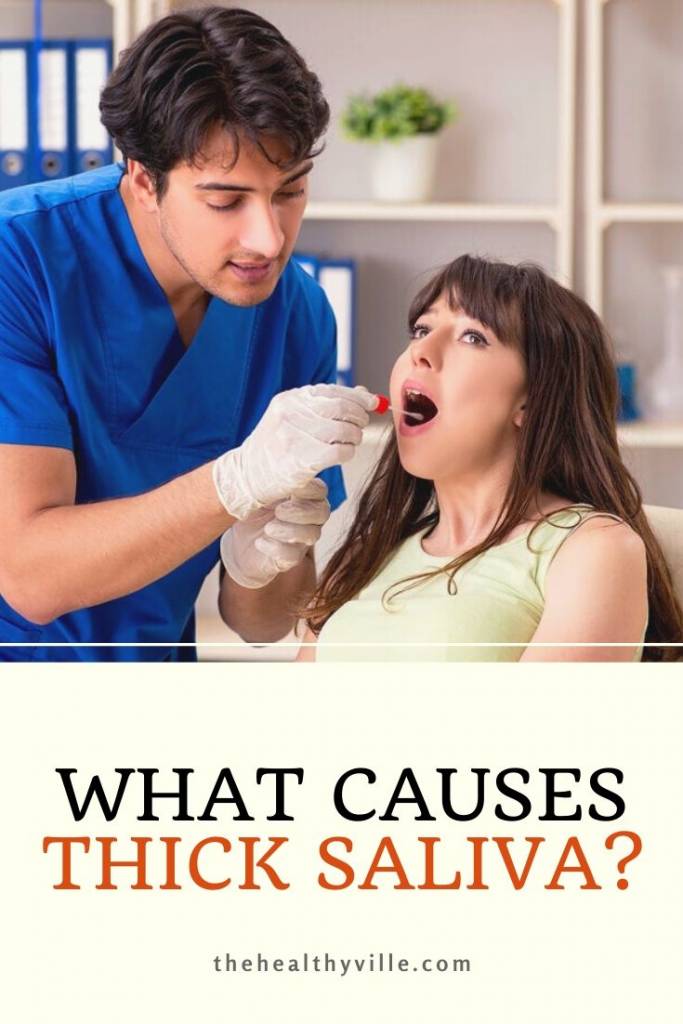What causes thick saliva? Is it dangerous? What can you do about it? Learning the answers to these questions can help you a lot!
Saliva may become thicker because of some diseases. It can also be altered by hormonal changes or as a result of the consumption of certain medications.
Saliva is essential in the oral cavity, as it keeps tissues moist and helps clean the mouth. Therefore, when it decreases or changes in consistency, becoming for example thicker, it produces variations in the oral balance that, in turn, generate an imbalance of the flora.
The salivary glands are responsible for producing saliva. When these glands are altered for different reasons, such as chemotherapy or radiation, they can cause different morphological changes in saliva.
The increase in saliva thickness makes it more sticky and viscous. In addition, apart from the inconvenience for the patient, it can cause problems such as difficulty speaking, eating, swallowing and even breathing correctly. What can we do to address this problem?
What causes thick saliva?
Thick saliva can originate due to different pathologies, such as:
- Arterial hypertension
- Diabetes
- Renal problems
- Salivary duct stones or obstructions
- Different types of cancer
- Parkinson
- HIV
- Mouth infections
- Strokes
It can also occur due to irritation or dry mouth due to hormonal changes, especially in women from 40 years. Aging can also be a cause.
Another very common cause is the adverse effects of medications, such as chemotherapies, antihistamines, antidepressants, diuretics or analgesics.
Thick saliva can appear due to different diseases. In addition, it can also occur due to hormonal imbalance, medications and aging.
What problems can it cause?
If the saliva thickens too much, the way of swallowing may change, passing the patient to aspirate instead of swallowing due to the difficulty that is opposed. This, over time, can result in aspiration pneumonia.
There is a dry and viscous mouth sensation that produces bad breath, difficulty swallowing, chewing and talking. There is an increase in caries and periodontal disease in the gums.
The tongue can dry, changing the sensation of taste and creating fissures in it. Mouth sores and chapped lips are also very common.
Diagnosis
There are tests to evaluate salivary flow, called sialometry, which evaluates the amount of saliva. Biopsies can also be developed on the salivary glands in order to analyze them and learn about their pathological problems.
How can we solve it?
If the salivary glands are damaged, there is no treatment for it. However, we can carry out different tips to try to reduce the thickness of the saliva:
- Increase the amount of water ingested to fluidize saliva.
- Moisten foods with sauces, broths etc.
- Use a room humidifier.
- Sleep with the head high.
- Gargle.
- Brush your teeth frequently.
- Chew gum frequently.
- Limit alcohol and tobacco consumption.
- Decrease the intake of spicy foods.
Dental treatment against thick saliva
It is essential to consider the pathologies and drugs that patients are taking, as well as psychological factors. Stimulants of salivary production or salivary substitutes may be recommended to the patient, such as:
- Xylitol
- Aloe Vera
- Fluoride, as an essential part of daily hygiene.
Proper oral hygiene is decisive to mitigate the effects of thick saliva. Thus, we greatly reduce the bad breath generated by this problem.
Xylitol has remineralizing and anticaries effects, although it is also moisturizing. Aloe Vera is healing and prevents sores and fissures, both of the tongue and lips, thus improving the symptomatology.
Oral hygiene is essential, good brushing with a brush of medium hard filaments, pastes and mouthwashes with fluoride, and moisturizing gels, are a very good help for patients with this pathology.
Don’t forget to SHARE what causes thick saliva with your friends and family on your social networks!

